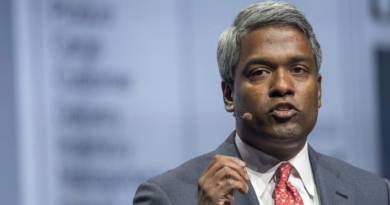VC billionaire Marc Andreessen says he wrote 'Why AI will save the world' because a 'hysterical freakout has arrived in Washington'
The world has gone hysterical over A.I. and had to be set straight. That’s why VC billionaire and occasional essayist Marc Andreessen wrote his 7,000-word manifesto “Why AI Will Save the World.” That’s what Andreessen told the great tech writer Ben Thompson on the Stratechery podcast.
Andreessen was a co-founder of Netscape (the first version of the internet) and is now co-founder and general partner of Andreessen Horowitz, the massively influential Silicon Valley VC firm. He’s also well known for posting essays on his blog, the most famous this year being his A.I. manifesto, which says A.I. could usher humanity into a “material utopia that neither Adam Smith or Karl Marx ever dared dream of,” complete with personal assistant bots and “infinite love.”
On Thursday, the billionaire told Stratechery’s Thompson that he had to write the manifesto to school the hysterics who think A.I. might damage the world.
“From my perspective it’s this very kind of a-technical, a-scientific, kind of hysterical thing that’s playing out,” he told Thompson. “By the way, in some ways it actually has interesting psychological similarities to some of the COVID hysteria. So there’s just a lot of hysterical freakout happening right now.”
Andreessen said that the current “anti-A.I. movement” of people who are wary of embracing the technology for fear of its existential threat to creativity, jobs, or humanity itself, is simply the widespread freakout of our era. He said that every historical era has its hysteria du jour, including the Salem witch trials, the rise of Nazism in Germany, and the Communist Revolution in Russia.
The venture capitalist, who said his only request for the interview was to not touch partisan politics, went on to say that he had to intervene with the manifesto because anti-A.I. hysteria was engulfing policymaking.
“The hysterical freakout has arrived in Washington, and it’s arrived in Brussels, and it’s arriving in capitals of countries all over the world right now,” Andreessen said. “The hysterics have a much bigger voice than people who are calmer and maybe a little bit more dispassionate about things. The demands for regulation and laws under conditions of hysteria have kind of reached the point where I felt like I couldn’t just let that continue.”
There is currently no regulation on A.I., although the EU has suggested a legal framework in its A.I. Act proposal. Notably, though, OpenAI CEO Sam Altman himself, testified before a subcommittee of the Senate Judiciary Committee in May, urging Congress to regulate the new technology and saying that OpenAI wanted to cooperate with the government to create A.I. laws.
And as much as Andreessen highlights a hysteria about the perils of A.I., many voices have employed high-flying rhetoric on the other side of the debate, taking extreme stances such as that A.I. is the “birth of a superhuman” or that it could be “lights out” for humanity.
Elon Musk has actually given voice to both, saying that A.I. could both lead to the “destruction” of civilization, and that it could create an “age of abundance.”
For his part, Wedbush’s tech analyst Dan Ives calls it the “fourth industrial revolution,” and it’s still completely up in the air as to how it will transform daily life, but the odds are that it will be pervasive.
Andreessen has a famous track record, of course. His 2011 essay, “Why Software is Eating the World,” is considered prescient by techies for seeing that software would completely disrupt business, and that traditional businesses needed to incorporate it to remain competitive. It also described software as a democratizing tool that would lower barriers for launching startups. These arguments, made over a decade ago, have largely come true, as evidenced by the growth of Amazon into a dominant retailer on the scale of Walmart.
Now Andreessen is saying that people are too quick to go off the deep end, and they should see the cool new tech as just that.
“The people who are freaking out about A.I. never even bothered to stop and basically try to make the positive case, and just immediately assumed that everything is going to be negative,” Andreessen said. “The positive case on A.I. is very straightforward, which is number one is just A.I. is a technical development.”
It may be the most powerful piece of tech ever invented, he added, but it is still just a “technical development” that responds to prompts.
This is a main topic of discussion in Andreessen’s manifesto, succinctly put as such: “AI doesn’t want, it doesn’t have goals, it doesn’t want to kill you, because it’s not alive. And AI is a machine – is not going to come alive any more than your toaster will.”


